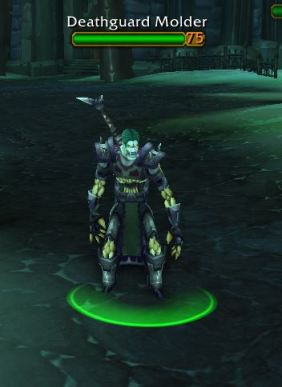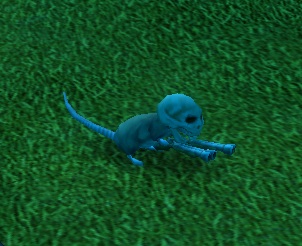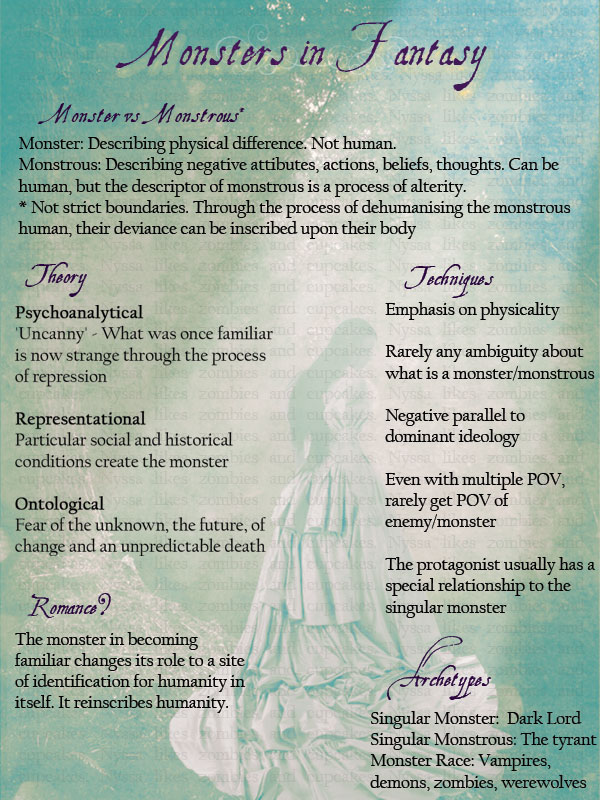Tag: zombies
More on Monsters
I make no attempt to hide how much I love monsters. My collection of Daleks is bigger than my collection of Tardis’. I call myself Forsaken in Warcraft and am dedicated to the Dark Lady (crazy zombie lady wants to kill all of the living – the usual). Part of this blog post was an assignment I did for uni, where I had a lot of fun in reading all about how we create monsters. This will be primarily on books, but also a few movies and TV too. Some of this touches on what I want to write in my thesis next year too!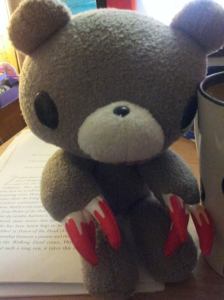
Nosferatu, my little fluffy buddy from Nebraska (protector of the coffee mug).
In fantasy* especially, the differences between good and evil are particularly stark and this binary is usually played out between hero and monster/monstrous entity.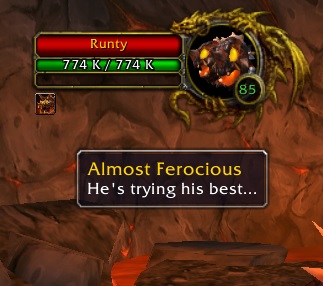
What is a monster/monstrous?
What is a monster or is monstrous are fluid descriptors. In general, the monster/monstrous is Other and ‘unlike us’. It is made of difference. The monster is the physical form and not human. Humans, however, can have monstrous aspects, which could be cultural, political, racial, economic or sexual differences. The descriptor of ‘monstrous’ is a process of alterity. These are not strict boundaries – through the process of dehumanising the monstrous human, their deviance can be inscribed upon their body (e.g. historically, this would be something like saying an enemy had a deformed body). In some cases, the monster can be the hero of a text, but the villain is usually dehumanised by their evil actions, thoughts or beliefs.
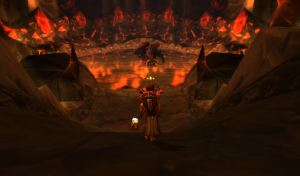
Narrative Techniques
Metaphoric mode
Fantasy is a metaphoric mode, using techniques like indirection, parallel and allegory to comment on contemporary social practice. The theories of monsters also usually focus on the representational aspect. The monster/monstrous can stand for something repressed, a specific social and historical anxiety, or fear of the unknown. Textually, there is usually an emphasis on physicality (as well as inscribing deviance, it can be even a glance, “eyes as unforgiving as a snake” etc). The monster/monstrous itself can be a form of authority, and representing a negative ideology (the opposite to the usual values, morals, beliefs of a society – e.g. the monster could say that it is okay to kill for one’s own pleasure or power gain). The goal of the monster/monstrous is usually to seduce the hero to the dark side or kill them. The hero cannot be ignored. Often, the main character has a special relationship to the monster – particularly if it is a singular monster/monstrous** – or the hero is somehow special to them (particularly in paranormal romance).
Recommended Fiction
- of the dead movie series, Romero (very clearly metaphoric of many anxieties – Romero’s zombie movies have been analysed many times)
- Many dystopias are metaphoric – the very nature of the genre is that it takes what we have in society now to the extremes and extrapolates the change in human nature. The meaning of the genre is also to be a warning.
- Witches of Eileanan series by Kate Forsyth
- The Belgariad & Malloreon series by David Eddings
- Twilight series by Stephenie Meyer
- Sookie Stackhouse series by Charlaine Harris or True Blood tv series
Focalisation/Point of View
While third person narration is more familiar in larger fantasy sagas, the monster/monstrous rarely gets a word in edgewise. Usually if they do get their own perspective, this is for dramatic effect so that you the reader can see something bad coming, but the good guys have no idea. However, in works such as dystopias and paranormal romances, limited first person is more typical. It can happen in these genres that the monsters (not monstrous entities) become heroes, romantic interests and sometimes even focalisers. It is often said that the role of limited first person narration is to get the reader on their side, so this narrative strategy at once defamiliarises the reader through having such a strange protagonist, at the same time as making them more sympathetic to the reader (Note: This is what I’m actually going to explore in my thesis).
Recommended Fiction
- Dust by Joan Frances Turner
- Warm Bodies by Isaac Marion
- Generation Dead (book #1 in a series) by Daniel Waters
- Dearly Departed (#1 in a series) by Lia Habel
- My Life as a White Trash Zombie (book #1 in a series)by Diana Rowland
- Endless vampire books – but the good ones are Evernight (Book #1 in series) by Claudia Gray and Vampire Academy (book #1 in series) by Richelle Mead and Blue Blues (book #1 in series) by Melissa de la Cruz.
~
A thought on disembodied monsters
Something this makes me consider is if something disembodied can be a monster or monstrous, for example, an extremely repressive society, or certain technologies. It becomes almost an entity in itself where it is not one person alone or one sub-human race alone that is the problem, but something incredibly integral to how life is lived. Often in science fiction and YA, a dystopia comes about because something was once seen as progressive. Humans strive for utopia, and that striving for progress in itself becomes the horrific dystopia. Technology and ideas become threatening to the very stability of the world. You hear it now, the internet is softening our minds, we are losing our inner humanity through the progress of wearable (or implantable) technology. That fear comes across in books as well. Does that mean it is a monster or monstrous?
Recommended Fiction
- Feed by M T Anderson
- Uglies (series) by Scott Westerfeld
- The Hunger Games (series) by Suzanne Collins
- Unwind by Neal Stephenson
~
A blurring of boundaries – Hero or Villain?
Something which particularly strikes at me are ambiguous heroes/villains. It could be they were perceived one way before and now are the other, or they have changed over the series and become greater/worse than who they were. I think this is particularly stark in zombie stories such as The Walking Dead, where the enemy is not so much the zombies but other humans. The things the group needs to do to stay alive are utterly barbaric, but that is survival. In the Flesh is about how a cure was created for zombies, to bring them back to who they were before and how society deals with that. This is also dealt with in a lot of zombie romance texts. In fantasy, it could be that a blackhearted villain is not really evil, but coerced by others or convinced that it is the best thing because the alternatives are worse.
Recommended Fiction
- The Walking Dead comics and tv show
- Quiver by Jason Fischer
- In the Flesh tv series
- Go re-read the recommended fiction section under Focalisation/Point of View
*For some reason, some works tend to use fantasy as an overall term that also extends to science fiction and horror – no idea why they don’t just use speculative fiction.
** Examples of archetypes: Singular Monster: The dark lord, the witch. Singular Monstrous: The tyrant, the evil step-mother. Monsters: Vampires, demons, zombies, werewolves. Monstrous many: aspects of society e.g. repression, technology etc.
~
Recommended Reading
- Applebaum, Noga. Representations of Technology in Science Fiction for Young People. New York: Routledge. 2010. Print.
- Bishop, Kyle W. American Zombie Gothic. Jefferson: McFarland & Company, 2010. Print.
- Botting, Fred. Limits of Horror: Technology, bodies, Gothic. New York: Manchester University Press. 2008. Print.
- Cohen, Jeffrey J. Monster Culture (Seven Theses). Monster Culture: Reading Culture. Minneapolis: University of Minnesota Press. 1996. Print.
- Levina, Marina and Diem-My T. Bui, ed.s Monster Culture in the 21st Century: A Reader New York: Bloomsbury. 2013. Print.
- Riley, Brendan. “Zombie People”. Triumph of the Walking Dead: Robert Kirkman’s zombie epic on page and screen. Ed James Lowder. Dallas: Banbella Books, 2011. 82-97. eBook.
- Stephens, John. Language and Ideology in Children’s Fiction. New York: Longman. 1992. Print.
- Trites, Roberta S. Disturbing the Universe: Power and Repression in Adolescent Literature. Iowa: University of Iowa Press. 2000. Print.
Hipster Zombies
One thing that semi-amuses and semi-irritates me is the attitude of ‘Everything new is bad’.
Zombies are so mainstream now. Zombies are so pop culture now. I only liked them when they were scary. I only liked them when the films were made by Indies.
And so on! I do exclude from this general dislikes: aka disliking running zombies, because really, there’s no way we’d outfight that. We’d be gone and done for. With slow zombies, we have a chance. Anyway, that doesn’t mean you hate all new films.
The basic argument is “Have you seen all these new zombie films that you say you definitely hate them ALL? Really?”. But more than that, zombies are now in the hands of authors and screenwriters. They are bloody creative beings and that’s why we love them and have our favourites (Neil Gaiman writing for Dr Who? Hells yeah I’m watching that episode!). You can’t dictate to others how they SHOULD be doing things.
Imagine what it was like when America started taking up the zombie idea, but from the perspective of those who believed in it for real. Or imagine growing up in the 30s and 40s and all those great zombie films and then watching Romero. What the hell are these things?! “These aren’t zombies”. That’s because they have changed – and the world and humans and culture tend to do that.
You don’t have to slap “Twilight rip-off” on every single zombie romance (and I will kill you in the apocalypse for doing that). But zombies don’t think, you say! Well, we all worship at the altar of Romero (all zombie fans run back to Grandfather when they want justification), and zombies do have a growing consciousness particularly in Day of the Dead and Land of the Dead.
So why am I blabbering on about this? Because of a fantastic French movie I can’t bloody find anywhere to buy, and it’s re-make into a tv series, Les Revenants. And I want it, regardless of the hipster zombies on the comments. The storyline looks incredible!
There’s an article here at the Telegraph and one here at Den of Geek talking about the series coming to the UK, and man, I am so jelly right now. It’s super unlikely it’ll ever come to Australia, so I’ll have to wait till it comes out on DVD/Bluray.
